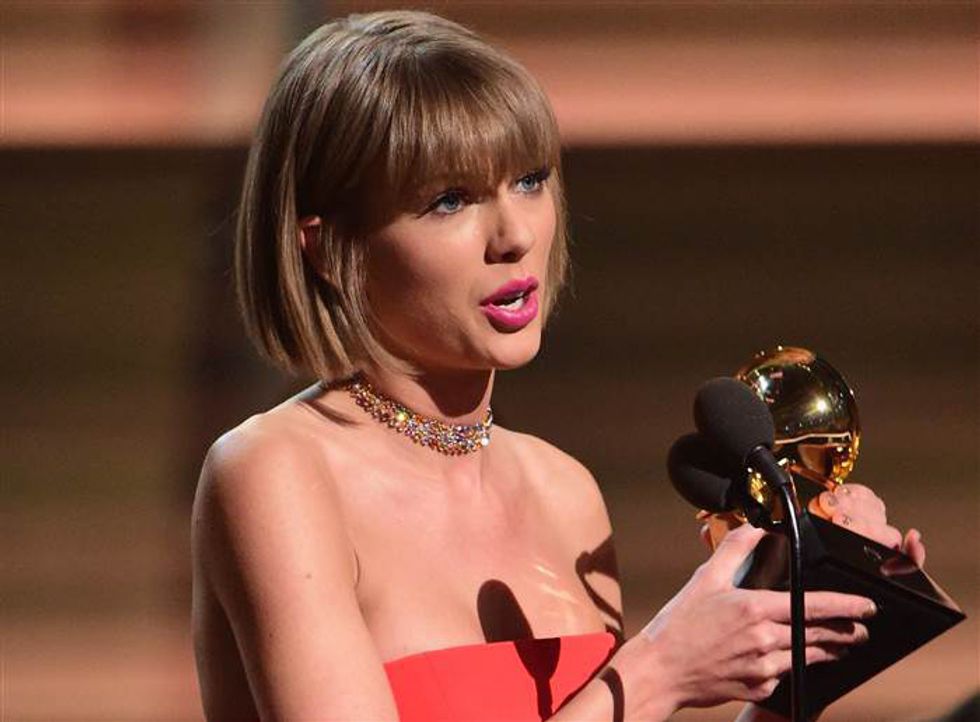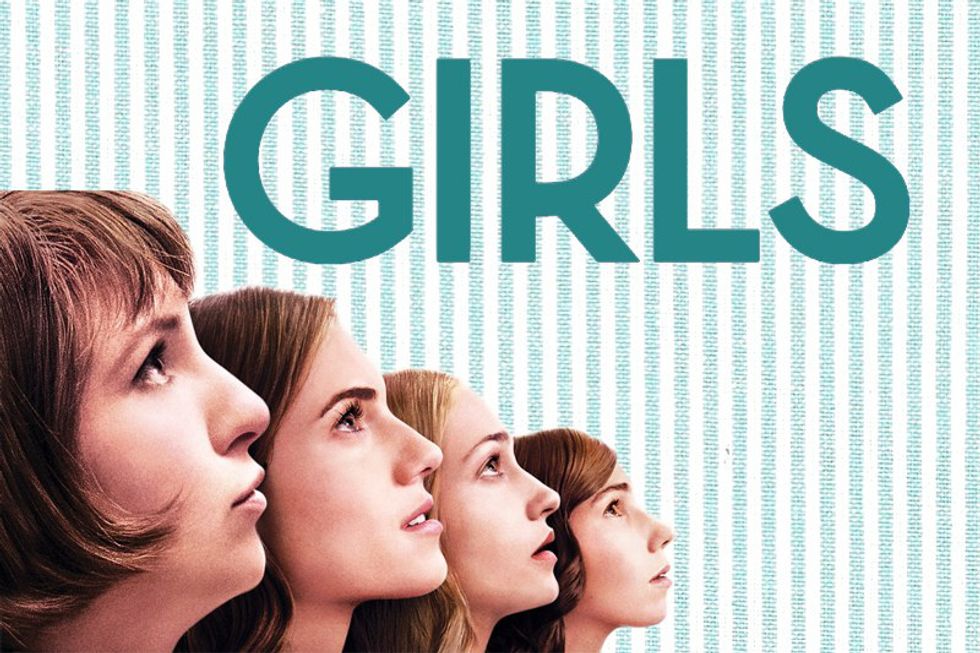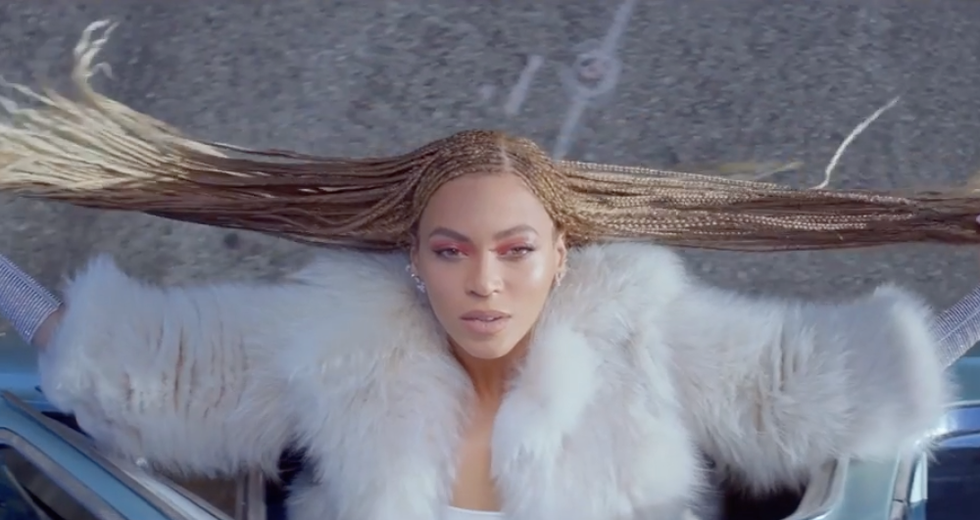Feminism is an interesting paradox. On the one hand, we have a movement that has done a great deal for certain groups of people. I fully appreciate the rights and freedoms granted to me as an American woman. On the other hand, I realize that like any major movement, there is always room for improvement. Feminism now seems to be more of a trend. It's used by celebrities as an accessory to sell records and drive ratings. While I would never try tell another woman how she should make her money, especially with the gender-based wage gap in this country, I'll be honest in saying I think we need to reexamine feminism, or at least who we are idolizing as the public face of it. The rise of the femA-List, celebrities proudly calling themselves feminists, is the latest in a series of movements affecting a socially conscious Hollywood. It's wonderful that the movement has gained some traction with notable faces like Lena Dunham and Jennifer Lawrence speaking out about the injustices they've faced in their careers. But theirs is a privledged Feminism reserved for certain women. It's visible because they have the resources to make it so. The real deal is that their feminism is not all-encompassing, and it certainly doesn't apply to me.
Take, for example, Swift's Grammy acceptance speech where she boldly declared,
There are going to be people along the way who will try to undercut your success or try to take credit for your accomplishments or your fame.
While it's great that she can boldly get on the Grammy stage and declare that she worked hard for her money, this isn't a concern for most other women out there. I'm not worried about whether some man is going to be obnoxious enough to try and take credit for my work. Instead, I'm just trying to get the opportunity to show that I can do the work. For those women who are poor, of color, are not heterosexual or don't fit into some sort of gendered norm, this is a reality. I do commend her for being bold enough to assist Ke$ha with her legal fees after a judge denied her request to record music independent of her producer and rapist. But what does Swift expect will happen for the millions of "young women out there" who either don't have the opportunity to create work so good a guy wants to take credit for it or don't have the luxury of fame to help them get public interest or potential justice for their sexual assault? I suppose they will have to take inspiration from her "Bad Blood" music video. When in doubt, feuding with another woman is always a good...I guess. Please note the two minorities in her girl-squad, and the lack of advocacy for women of color in her industry despite the education she received after her attempted beef with Nicki Minaj. But she stood up to Kanye the bully so it's all good, right?
It's good that public figures are trying to do their part in helping women get a foothold on the world stage, but the femA-List circle looks a little limited from where I'm standing. If these stars are going to use their talents to put images of strong women out there, shouldn't they at least look like me, or any of the millions of other women who don't have a seat at the table yet?
For example, Lena Dunham's "Girls". Praised for portraying the lives of ordinary-looking young women, the show is noticeably missing the wildly diverse population that makes up the city of New York. Where are all the black girls, and Latino girls, and Asian girls and immigrant girls, and transgender girls and non-Christian girls? Inquiring minds want to know. If the self-proclaimed feminist wants so terribly to accurately represent young women in New York, I think that should mean all young women. Should I decide to pursue my post-graduate degree in New York City, I know for a fact my friends and I will only be able to relate to about 1% of what is portrayed on her show. Dunham is proud of the fact that she is representing female bodies that don't fit the "norm", forget the fact that those bodies look nothing like the actual young female population of New York. At least we can all feel good about seeing a body that isn't a size 2 on premium cable.
Women of color have always played a part in the feminist movement since its inception. They may not have always been in the limelight, but they're there nonetheless. Beyoncé has given women of color a more modern feminist face, and I would still argue that hers is a privileged feminism as well. Queen B boldly invoked Chimamanda Ngozi Adichie and declared that she will take ownership of her sexuality confidently, in a way that does not require anyone's approval but her own; while still being a wife, mom, and Grammy-winning superstar. That's great, and all the power to her. Unfortunately, if I chose to emulate Beyoncé's ownership of her sexuality in a similar manner, I doubt that I would receive the praise that she would. Heaven forbid someone should see the ownership of my sexuality as an invitation, I doubt that, "I was taking ownership of my sexuality like Beyoncé", would go over well.
The femA-List is doing a great deal for the feminist movement, but only so far as the movement focuses on the problems that they want to address. The stars who are standing up and saying that it's about time women got some equality are right for doing so, but when do they, and those who follow them, go deeper and realize that feminism is intersectional. There are racial, classed, and religious barriers put on women all the time and they are often only addressed when convenient. Equality for women should mean equality for ALL women. Being a feminist doesn't mean standing up for just one part of the oppressed community. As a feminist, I ask, will the real feminists please stand up?
























